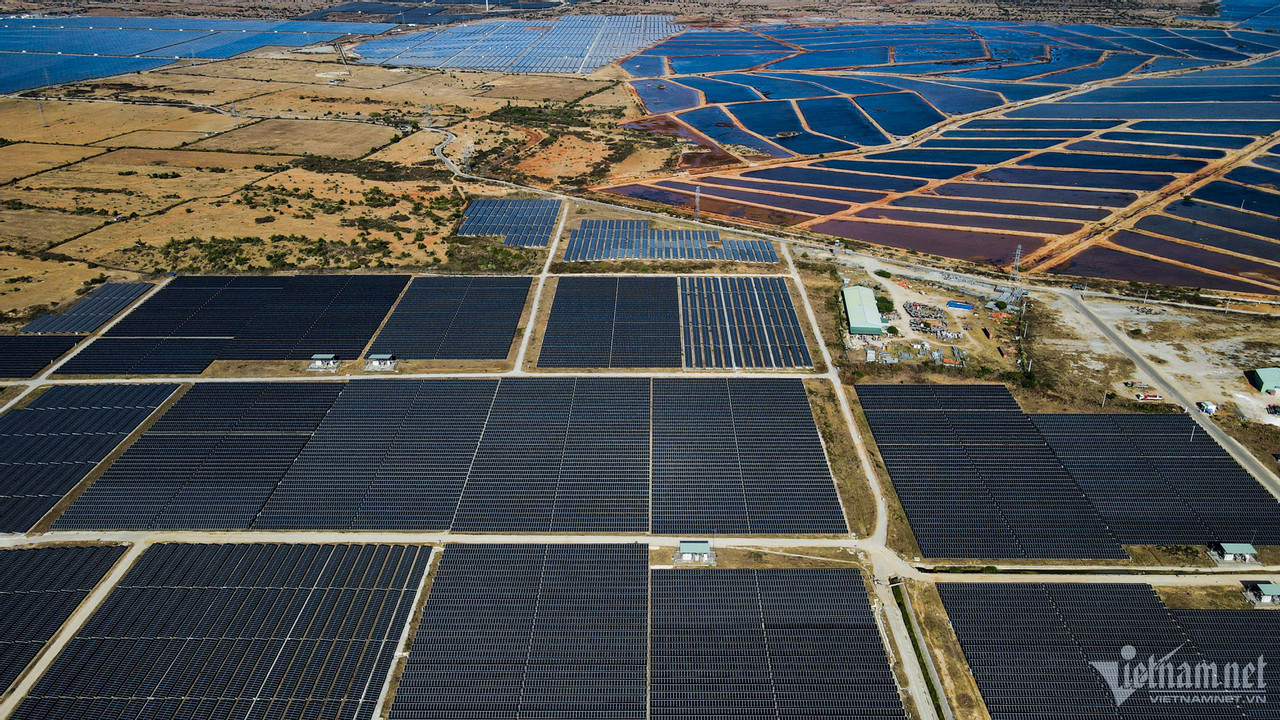
The Ministry of Industry and Trade (MOIT) has been assigned to remove obstacles in these renewable energy projects so they can operate as soon as possible.
If the wind and solar power projects enjoyed the FIT (feed in tariff) scheme without documents from state agencies officially accepting the work, EVN (Electricity of Vietnam) will recognize their COD (commercial operation date) and sign PPA (power purchase agreement), check every project, and discuss with investors the way to handle problems according to inspectors’ conclusions.
This means that the projects will immediately stop enjoying FIT, and prices for the transitional period will apply. Project developers will have to pay back the money they got due to the price difference to the state under a roadmap to ensure uninterrupted operation of projects.
If wind/solar power projects were developed on land initially reserved for mining and irrigation, ministries and branches will have to work with local authorities to assess the economic benefits of the power project in the localities and adjust professional planning to avoid waste.
As for the solar power projects mentioned in the Inspectors’ Conclusion No1027 released April 28, 2023 as having no legal foundation in planning, MOIT with other ministries will update the planning and adjust the power development strategy in the 2025 review period.
Obstacles
The projects were initially implemented with a financial plan with FIT. Therefore, if they cannot enjoy FIT in reality and have to apply transitional prices (35-50 percent lower) and pay back money, this may cause them to collapse or cause serious consequences, analysts warned.
First, this will affect power supply security. The total renewable power capacity of 21,664MW according to MOIT, accounts for 12.75 percent of total capacity of the whole system, and most of them cannot satisfy the requirement on official acceptance before COD.
As such, if this solution is implemented, it will have a negative impact on renewable energy projects, directly affecting power security.
Second, this will affect the financial system. The common characteristic of PPAs in independent power projects (IPP) in Vietnam is that they don’t meet all the requirements eligible for capital from international credit institutions.
This means that nearly all renewable energy projects are implemented with domestic capital sources. If power projects cannot pay debts, this will impact the domestic financial system.
Third, this will affect socio-economic development. Unprofitability and bankruptcy will affect local economies and cause social problems as a large number of workers will become redundant.
Fourth, this will cause waste of social resources and affect the investment environment.
The suspension, closure, or bankruptcy of projects will negatively impact local economic development, and reduce tax revenue and GRDP (gross regional domestic product).
Under the 2014 Law on Construction, all construction works must obtain official acceptance from competent agencies before they put into operation.
However, the inspected energy works (power generation and power transmission lines) implemented since 2014 became operational before the procedures to get official acceptance from competent agencies were completed. This also happened with state-funded projects.
Administrative procedures
In reality, all power projects, before they can connect to the national grid and become commercially operational, have to undergo tests, assessments and technical official acceptance to prove that they can satisfy requirements in quality, operation, environment and fire prevention and control.
During operation, they are subject to supervision and periodic inspection from agencies.
So, energy projects in general and renewable energy projects in particular all have to satisfy strict requirements on quality and technical standards. Thus, accepting the official acceptance of power works should be considered as administrative procedure.
In fact, there are many problems that cause delays in administrative procedures, including inadequacies in land planning and changes in land use purposes.
In addition, many renewable energy projects kicked off in 2019-2021, when the Covid-19 pandemic broke out, making it difficult for investors to fulfil administrative procedures.
To Van Truong